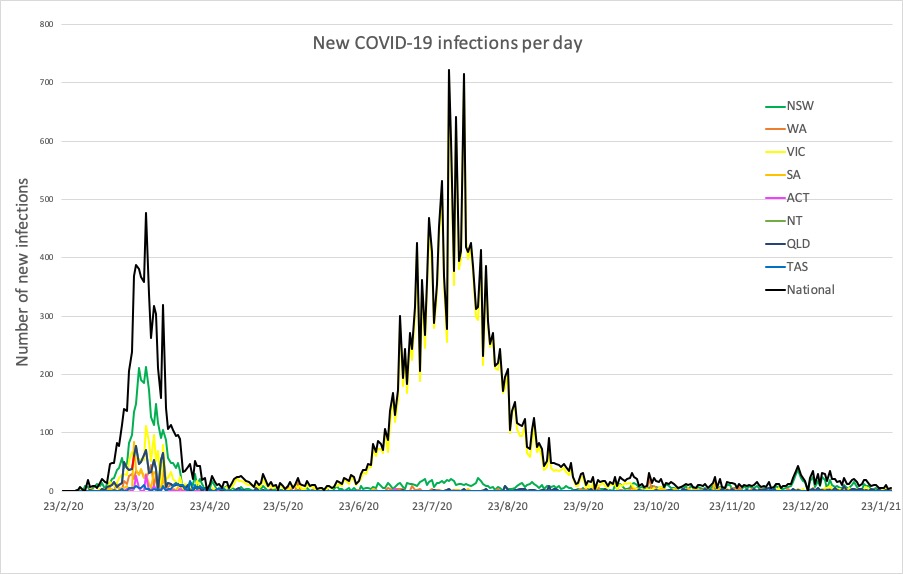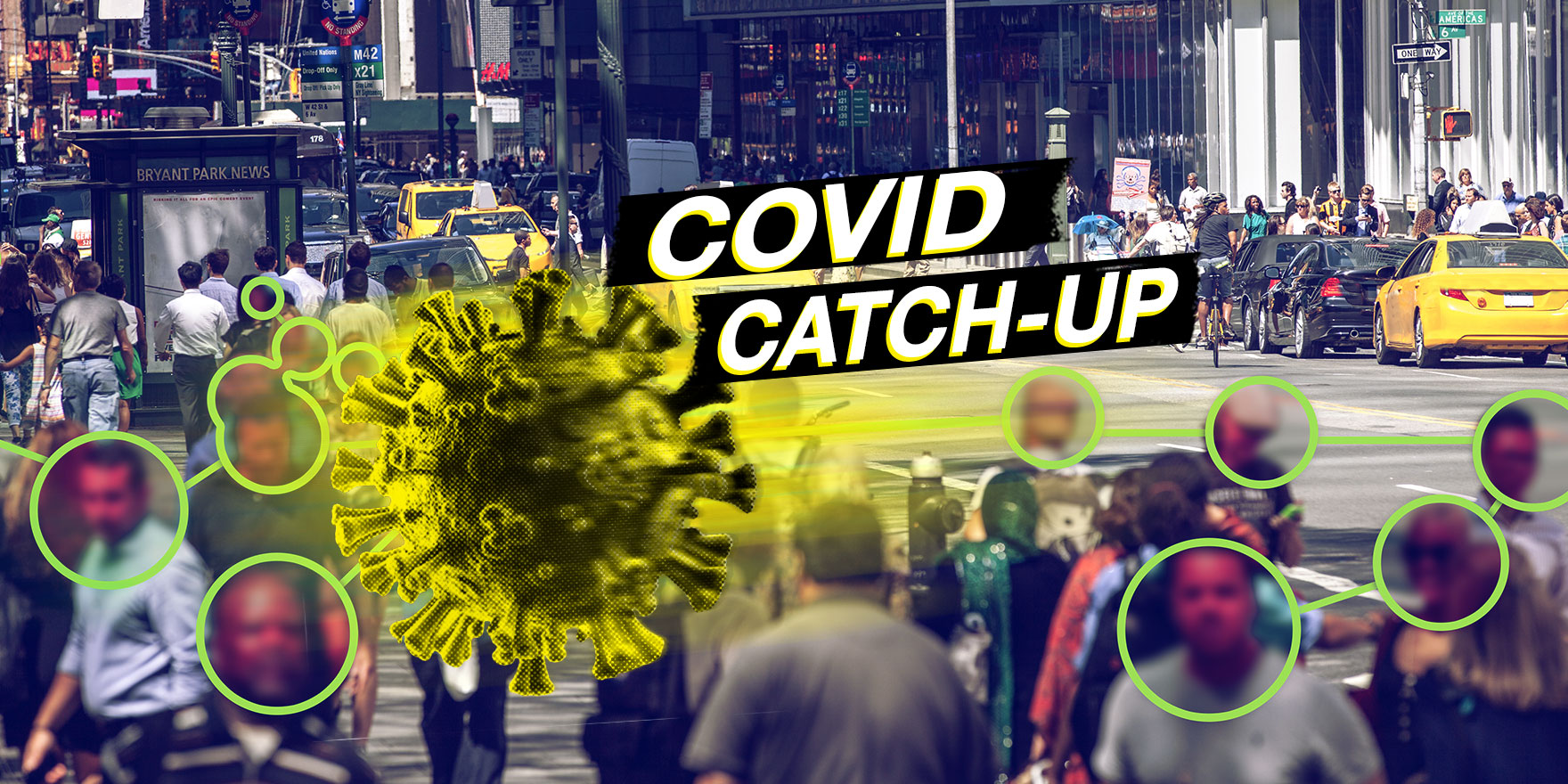And a history of schizophrenia may also significantly increase the risk of COVID-19 mortality.
Welcome to The Medical Republic’s COVID Catch-Up.
It’s the day’s COVID-19 news in one convenient post. Email bianca@biancanogrady.com with any tips, comments or feedback.
28 January
- Pregnant women with COVID-19 have a significantly higher risk of hospitalisation and death, study suggests.
- Schizophrenia but not mood disorders associated with significantly higher COVID-19 mortality.
- Loss of working hours during pandemic four times greater than in the global financial crisis.
- COVID-19 infections worldwide decline for second week in a row.
- Latest confirmed COVID-19 infection numbers from around Australia.
Pregnant women have significantly higher hospitalisation and mortality rates from COVID-19 compared to similarly aged adults, research suggests.
Writing in the American Journal of Obstetrics & Gynecology, researchers report the outcomes of a retrospective cohort study in 240 pregnant women who tested positive for SARS-CoV-2 – 56% in the third trimester of pregnancy. More than 90% of the women experienced mild disease, but the overall rate of hospitalisation was still 3.5-times higher than that seen in a similarly-aged population.
Three women died, which meant the case fatality rate for infection was more than 13 times higher than the general population. The women were all from minority ethnic backgrounds and had significant comorbidities such as obesity, hypertension, congenital heart disease and autoimmune disease. Two died of respiratory failure, and one of pulmonary embolus.
“Given the similarity in clinical course between COVID-19 and IAV H1N1 2009 with an increased risk for mortality during pregnancy and the postpartum period, we strongly recommend that pregnant patients should be considered a high-risk population to novel highly pathogenic respiratory viruses until proven otherwise by population-based studies with good ascertainment of pregnancy status,” the authors wrote.
Schizophrenia may significantly increase the risk of death from COVID-19 infection, according to a retrospective cohort study published in JAMA Psychiatry.
Researchers reviewed the medical records of 26,540 individuals tested for SARS-CoV-2 in New York, nearly 28% of whom had a positive result. Of these, around 1% had a history of schizophrenia, nearly 8% had a history of a mood disorder, and nearly 5% had a history of anxiety disorder.
Those with a diagnosis of schizophrenia were found to have a nearly 2.7-fold greater odds of dying within 45 days of their COVID-19 diagnosis, after adjusting for age, sex, race and medical risk factor, compared to those without schizophrenia. A more recent diagnosis was associated with three-fold greater odds of death.
However those with mood or anxiety disorders – even recently diagnosed – did not show an increase in 45-day mortality.
“A higher risk with schizophrenia spectrum diagnoses was expected based on previous studies of all-cause mortality, but the magnitude of the increase after adjusting for comorbid medical risk factors was unexpected,” the authors wrote.
They suggested the increased risk of death may be associated with patients delaying seeking medical care or having less access to care for COVID-19, but also raised the possibility that the pathophysiology of schizophrenia may play a role.
The drop in working hours around the world during the COVID-19 pandemic was four times higher than that seen during the global financial crisis of 2009.
Statista reports that the loss of working hours during 2020 was equivalent to around 255 million full-time jobs, representing $3.7 trillion in lost labour income compared to before the pandemic.
Data from the International Labour Organization showed that the second quarter of 2020 was the worst, when lockdowns resulted in working hours being cut by the equivalent of 525 million jobs.
While the situation has improved as people have returned to work or taken up working from home, the ILO predicts that working hours won’t return to pre-COVID-19 levels until after 2021.
The number of new COVID-19 cases reported globally has declined for the second week running, according to the World Health Organization.
In the seven days to 24 January, 4.1 million new cases were diagnosed – compared to 4.7 the previous week – bringing the globally tally to 98.2 million (but the most recent figures put global numbers over the 100 million mark).
Europe recorded an overall 20% decline in cases, but France experienced a 10% increase. New cases in the United States dropped by 20% compared to the previous week, the United Kingdom had a 24% decrease, and across Africa cases dropped by 16%.
Another day of zero cases of community transmission in Australia, with all new cases reported in returned travellers.
Here are the latest confirmed COVID-19 infection numbers from around Australia to 9pm Wednesday:
National – 28,786 with 909 deaths
ACT – 118 (0)
NSW – 5093 (2)
NT – 98 (0)
QLD – 1306 (1)
SA – 596 (0)
TAS – 234 (0)
VIC – 20,444 (2)
WA – 897 (2)



